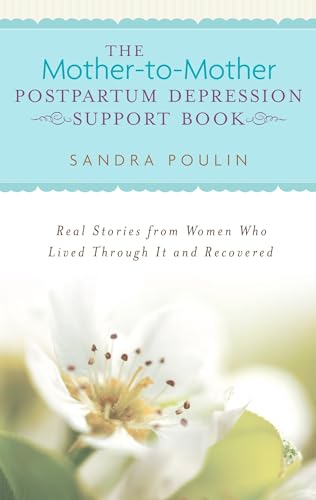Breaking the silence about postpartum depression is a crucial step in your recovery. By openly sharing your feelings, building a support network, and establishing consistent self-care routines, you create stability and rebuild confidence. Remember, progress is gradual, and celebrating small victories helps maintain hope. Patience and acceptance are key as you navigate ups and downs. If you keep exploring, you’ll discover more ways to support your healing journey and find strength in your vulnerability.
Key Takeaways
- Sharing your experience with trusted individuals reduces stigma and fosters emotional support during postpartum depression recovery.
- Establishing consistent self-care routines provides stability and reinforces personal well-being.
- Recognizing small victories boosts confidence and highlights progress in the healing process.
- Connecting with support groups offers safe spaces for sharing and normalizing postpartum challenges.
- Patience and professional help are vital, as recovery is non-linear and requires ongoing effort.

Recovering from postpartum depression can be a challenging journey, but with the right support and strategies, you can regain your emotional well-being. One of the most important steps is establishing consistent self care routines. These routines aren’t just about pampering yourself; they’re about creating stability and prioritizing your mental health. Start by setting aside small moments each day for activities that nurture you, whether it’s taking a short walk, practicing deep breathing, or enjoying a warm cup of tea. These acts of self-care reinforce that your needs matter and help rebuild your confidence. Remember, recovery isn’t about perfection; it’s about progress, and caring for yourself is an essential part of that process. Enhancing emotional resilience can further support your recovery journey by helping you cope better with challenges along the way.
Building and maintaining emotional support networks is equally essential. You don’t have to face postpartum depression alone. Reach out to trusted friends and family members who can listen without judgment and offer encouragement. Sharing your feelings with others creates a sense of connection and reminds you that you’re not isolated. Support groups—whether in person or online—can be invaluable, providing a safe space to share experiences and learn from others who understand what you’re going through. These networks serve as emotional anchors, helping you feel less overwhelmed and more understood. Sometimes, just knowing someone is there for you makes a significant difference in your recovery.
Building emotional support networks helps you feel less overwhelmed and more understood.
As you work on your recovery, be patient with yourself. It’s normal to have good days and bad days. Consistently practicing self care routines helps you develop resilience, while leaning on your emotional support networks strengthens your resolve. Don’t hesitate to seek professional help if you need it—therapy or medication can complement your efforts and provide additional tools to manage your emotions. Remember, recovery isn’t linear, and setbacks are part of the process. Celebrate small victories, like feeling a little more hopeful or managing to get through a tough day. Over time, these small steps add up, paving the way toward emotional stability and renewed confidence.
Ultimately, your journey is unique, but prioritizing self care and nurturing your support networks are foundational steps. With patience, persistence, and the right resources, you can heal from postpartum depression and reclaim your happiness. Trust that you’re worthy of support and that recovery is possible. Every effort you make is a sign of strength, and each day brings you closer to feeling like yourself again.

The Postpartum Depression Journal: Prompts and Exercises for Reflection, Healing, and Self-Care
As an affiliate, we earn on qualifying purchases.
As an affiliate, we earn on qualifying purchases.
Frequently Asked Questions
How Long Does Postpartum Depression Typically Last?
Postpartum depression can last anywhere from a few weeks to several months, depending on your emotional resilience and support system. You might experience symptoms for longer if untreated. Seeking therapy options, like counseling or support groups, can greatly aid your recovery. Remember, everyone’s journey is different, and with proper care and patience, you can overcome postpartum depression and regain emotional strength.
Can Postpartum Depression Affect Future Pregnancies?
You might worry that postpartum depression could impact future pregnancies, but understanding hormonal fluctuations helps. While it’s possible for postpartum depression to recur due to hormonal changes, developing emotional resilience can lessen this risk. Remember, each pregnancy is unique. With support and self-care, you can navigate future pregnancies confidently, knowing that addressing your mental health now can help break the cycle and foster a healthier, more positive experience ahead.
Are There Specific Foods That Help Recovery?
You might wonder if certain foods can aid your recovery. Nutrient-rich foods like leafy greens, nuts, and berries provide essential vitamins and minerals that support your mental health. Adding mood-boosting snacks such as dark chocolate or yogurt can also lift your spirits. Incorporate these into your diet to help balance your mood and boost your energy, making your postpartum recovery smoother and more manageable.
What Are the Signs of Postpartum Depression in Partners?
You notice emotional symptoms like overwhelming sadness or irritability, and behavioral changes such as withdrawal or loss of interest. These signs of postpartum depression in partners can feel like a storm brewing beneath the surface, quiet yet intense. You might see them neglecting self-care or avoiding loved ones. Recognizing these signs early helps you support them, encouraging open conversations and seeking professional help to navigate the emotional turbulence together.
How Can I Support a Loved One With Postpartum Depression?
You can support your loved one by offering emotional support and listening without judgment. Encourage them to seek professional help, such as therapy or medication, if needed. Be patient and understanding, helping with daily tasks and reminding them they’re not alone. Your presence and reassurance can make a big difference in their recovery journey, providing comfort and stability as they navigate postpartum depression.

The Mother-to-Mother Postpartum Depression Support Book: Real Stories from Women Who Lived Through It and Recovered
As an affiliate, we earn on qualifying purchases.
As an affiliate, we earn on qualifying purchases.
Conclusion
Remember, your journey through postpartum depression is like climbing a mountain—difficult, but absolutely worth every step. Each small victory builds your strength, shining a light brighter than the stars. You’re not alone in this battle; your resilience is a force to be reckoned with. Keep pushing forward, knowing that recovery is possible and your brightest days are ahead. Believe in yourself—you’re stronger than you think, and this silence is about to be shattered forever.

Deep Breathing Exercises For Anxiety: Discover How To Reduce Anxiety With These 6 Simple Breathing Exercises
As an affiliate, we earn on qualifying purchases.
As an affiliate, we earn on qualifying purchases.

The Art of Holding in Therapy: An Essential Intervention for Postpartum Depression and Anxiety
As an affiliate, we earn on qualifying purchases.
As an affiliate, we earn on qualifying purchases.










